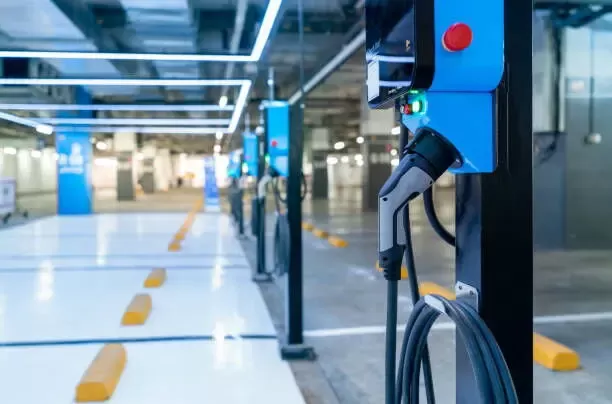Notifications

8 minutes, 12 seconds
-30 Views 0 Comments 0 Likes 0 Reviews

Introduction
As a professional EV charger manufacturer in China, Topper Company provides dependable electric vehicle charging station equipment and comprehensive charging solutions.
As the electric vehicle (EV) revolution accelerates, charging infrastructure must evolve to meet new demands. One emerging and rapidly growing solution is the off-grid EV charging station — a flexible, self-sufficient system that enables EV charging without relying on the traditional power grid. Designed for both remote locations and urban settings, these stations are transforming when, where, and how EVs are charged.
Whether deployed as permanent installations in isolated areas or temporary setups for events, emergencies, or grid outages, off-grid charging stations provide reliable, sustainable power—often harnessing renewable sources like solar and wind. Let’s explore what off-grid EV charging stations are, why they’re important, and how they’re redefining EV charging.
An off-grid EV charging station is a standalone power system that integrates Electric Vehicle Supply Equipment (EVSE) with its own energy generation and storage capabilities. Unlike conventional chargers that pull electricity from the utility grid, off-grid stations generate and store their own power—typically through solar panels, wind turbines, battery storage, or backup generators.
These stations are often modular and portable, enabling deployment wherever needed—whether along remote highways, construction sites, or event venues far from existing electrical infrastructure.
Core components typically include:
Solar panels or wind turbines for renewable energy generation
Battery Energy Storage Systems (BESS) to store and manage power
Inverters and controllers to regulate output and ensure safety
EV chargers offering AC or DC charging, depending on requirements
As EV adoption surges, the demand for versatile, resilient charging options grows. While grid-connected stations remain essential, they have limitations: geographic barriers, grid capacity constraints, and vulnerability to outages. Off-grid stations fill these gaps and offer several key advantages:
Energy Independence and Reliability
Off-grid chargers operate independently from the utility grid, making them invaluable during natural disasters, power outages, or overloaded infrastructure situations. This autonomy ensures EVs can be charged when mobility matters most—ideal for disaster relief, remote communities, military use, and rural tourism.
Sustainability and Environmental Benefits
By relying on renewable energy—most commonly solar—off-grid stations significantly reduce carbon emissions and reliance on fossil fuels. When combined with battery storage and smart controls, they enable a fully zero-emission charging cycle that aligns with the green goals of EV ownership.
Long-Term Cost Savings
Although the initial investment is higher, solar-powered off-grid chargers reduce or eliminate ongoing electricity costs. Financial incentives like grants, tax credits, and carbon offsets can improve return on investment, making them attractive for fleets, commercial properties, and municipalities seeking energy independence.
Scalability and Flexibility
Modular and portable by design, off-grid systems can scale with demand and adapt to various deployment scenarios—from temporary events and film sets to permanent rural installations—offering unmatched versatility.
1. Fixed Off-Grid Stations
Permanent or semi-permanent setups designed for rural communities, roadside stops, or fleet operations. These are typically larger systems powered by solar and battery storage, sometimes supplemented by backup generators, capable of supporting multiple vehicles over long-term use.
2. Mobile Off-Grid Stations
Compact, trailer-mounted, or containerized units built for rapid deployment. Perfect for temporary needs like festivals, emergency response, or construction sites, these portable chargers often include renewable power sources and onboard batteries to function autonomously for days or weeks.
Off-grid EV charging depends on a combination of advanced technologies working together:
Photovoltaic (PV) Systems: Solar panels convert sunlight into electricity.
Battery Energy Storage Systems (BESS): Store excess energy for use when sunlight or wind is unavailable.
Inverters: Change DC power from batteries or panels into AC power for vehicle charging.
Energy Management Systems (EMS): Optimize energy use, storage, and charging schedules for efficiency.
Smart EVSE: Enable safe, efficient communication between charger and vehicle.
Some systems also include wind turbines, fuel cells, or diesel generators as backups to enhance reliability.
Higher Upfront Costs and Complex Installation
Off-grid systems require more initial investment and planning due to generation, storage, and control equipment, as well as site-specific permitting and setup.
Energy Capacity Constraints
Limited by solar array size and battery storage, off-grid chargers can face shortfalls during cloudy weather or heavy usage unless carefully sized or backed up.
Maintenance Needs
Regular upkeep is necessary to maintain performance—cleaning panels, monitoring batteries, and updating control systems.
Power Output Limitations
High-power DC fast charging demands significant energy, which off-grid systems may struggle to support fully. Most offer Level 2 AC or lower-capacity DC charging, which might not suit all users.
Rural Electrification: Bringing EV charging to off-grid communities.
Disaster Recovery: Supporting emergency vehicles during crises.
Sustainable Tourism: Powering eco-resorts and national parks.
Temporary Events: Enabling clean charging at concerts, festivals, and expos.
Industrial Sites: Supporting electric equipment at remote construction or mining operations.
Advancements in solar efficiency, battery technology, and smart energy management promise:
Lower costs and better return on investment
Faster charging with improved energy use
AI-driven load balancing and integration into smart grids
Expansion in developing regions lacking stable grids
Support for vehicle-to-grid (V2G) applications
Both governments and private sectors are investing heavily in off-grid infrastructure to boost resilience, sustainability, and equitable access to EV charging.
Off-grid EV charging stations are far more than niche solutions—they’re vital to expanding the electric mobility ecosystem. By delivering clean, reliable, and independent power, they overcome many challenges traditional grid-connected chargers face.
As renewable energy technologies become more accessible and affordable, off-grid charging will play a crucial role in making EVs viable everywhere, regardless of location or grid availability. Whether you’re an EV driver, fleet manager, or infrastructure planner, exploring off-grid charging options now is a smart step toward a greener, more resilient future.Know more about Google SEO Directory
China EV Chargers EV Charger Manufacturer EV Charging Solutions

